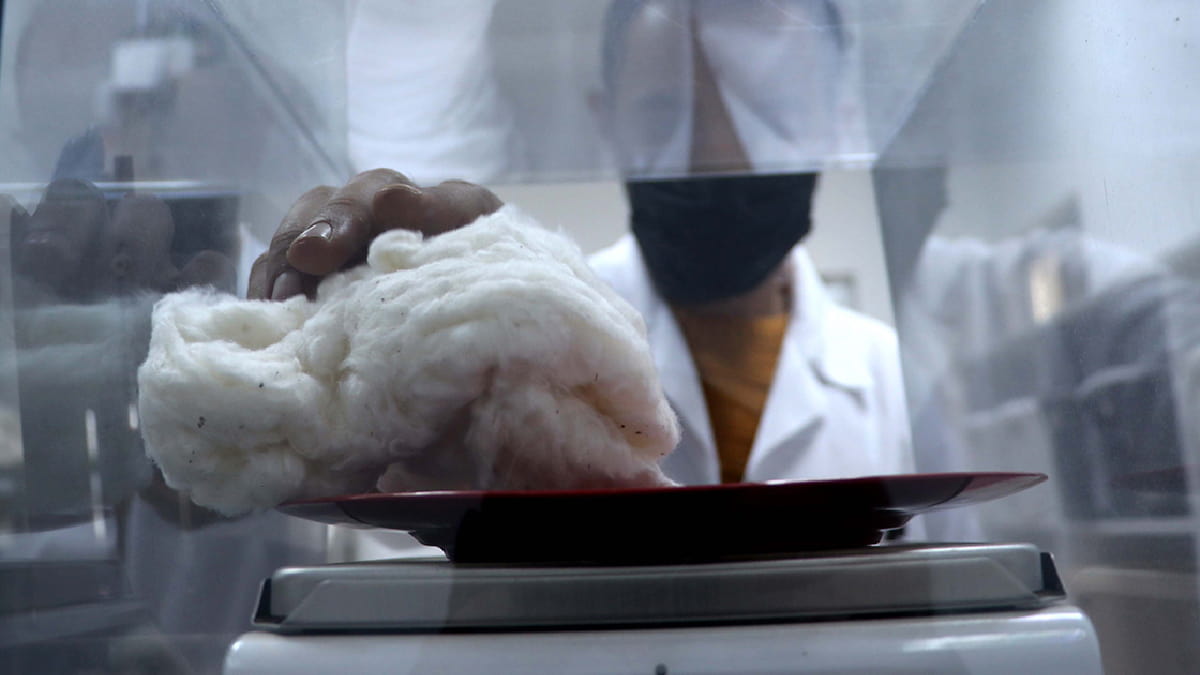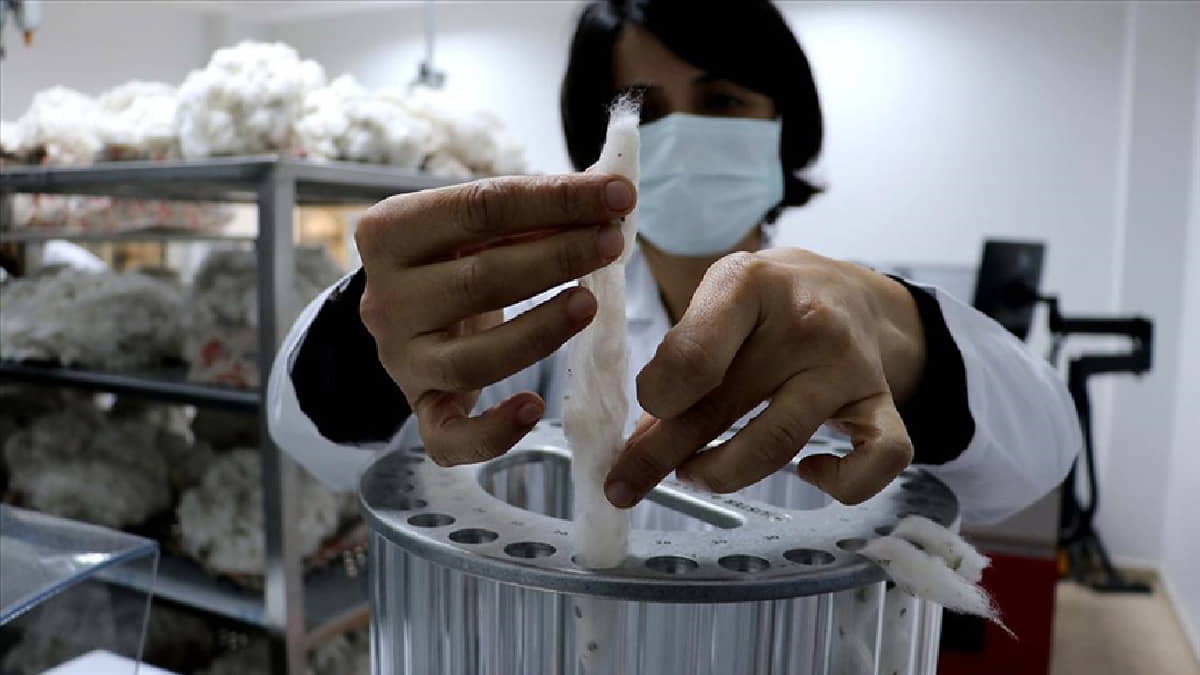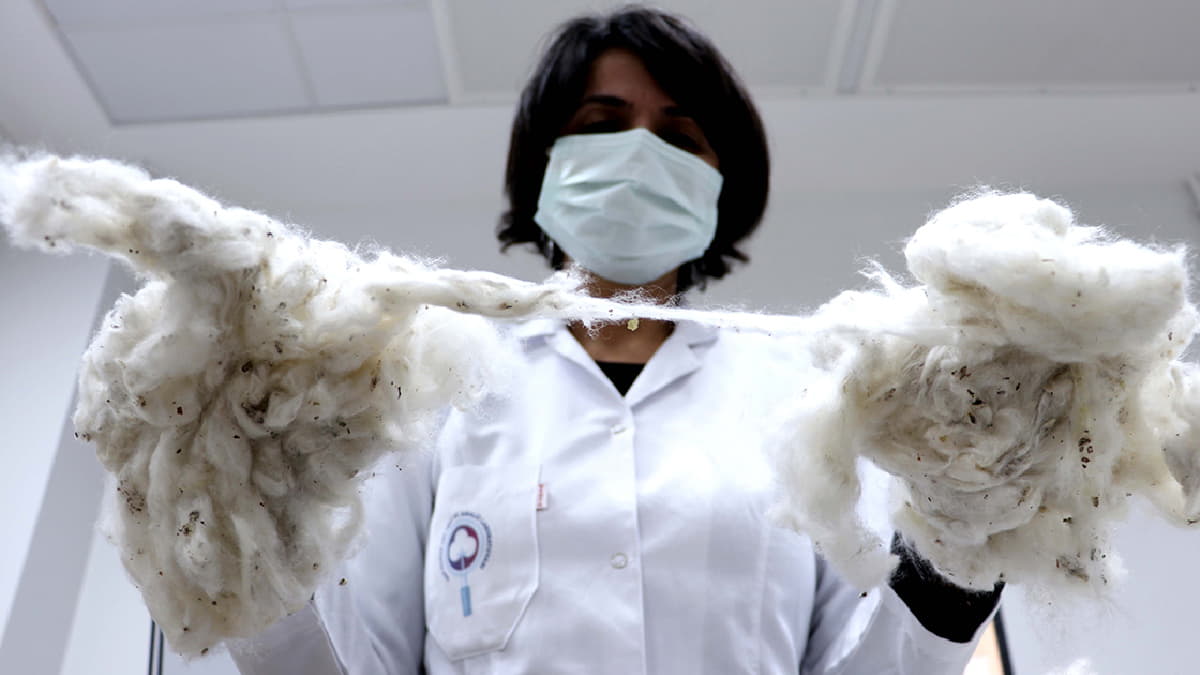The ‘GAP Cotton Fiber Test and Analysis Laboratory’, established in Diyarbakır 4 years ago, contributes to the branding of the cotton in the region and helps to determine its quality and sell it at the value it deserves. The laboratory, implemented with a budget of 6 million 500 thousand euros in line with the ‘Regional Industrial Cooperation in Cotton Fiber Manufacturing’ project and prepared by the GAP International Agricultural Research and Training Center within the scope of the Regional Competitiveness Operational Program by the Ministry of Industry and Technology, has an annual analysis capacity of 700 thousand. The laboratory meets the international accreditation requirements and has analyzed approximately 100 thousand domestic and disputed samples from abroad in 3 years.

The project aims to make a name for Southeast cotton
Laboratory supervisor textile engineer Seyhan Yaşar stated that they carry out activities in accordance with the working conditions of the International Cotton Association, headquartered in Germany, in 5 laboratories within the centre, and that international accreditation conditions are fulfilled, in her statement to AA. Yaşar disclosed that the aim of the project is to make a name for Southeast cotton and said; “This identity was gained. Southeast cotton is not sold as Aegean cotton now. The cotton, produced in the region is known in international markets as ‘Southeastern Anatolian cotton’, ‘Diyabarkır Cotton’, ‘Şanlıurfa cotton’ thanks to the laboratory”.
Yaşar noted that before, there was a distrust regarding the quality of cotton among the ginning and spinning mills and added that another aim of this laboratory is to eliminate this distrust. She also stated that samples were sent to the laboratory for analysis from research institutes, universities, ginning, yarn and seed companies in different parts of Turkey, and disclosed that they also analyzed samples sent from abroad in some disputed cases.
Yaşar relayed that they have been operating in their laboratories for 3 years and have analyzed approximately 100 thousand samples and said; “We have the potential to do 700 thousand analyzes annually. We keep the samples in storage for 6 months for reanalysis in case of objections to the results. There have been no objections to the results to date”.
“We are the only laboratory working in Turkey according to the international accreditation conditions”
Seyhan Yaşar underlined that they are the only laboratory working in Turkey according to international accreditation conditions and disclosed; “Samples come to us from different provinces of Turkey and abroad for this reason. Trust has been established between the ginning and spinning mills through the existence of a referee laboratory”.
Yaşar stated that they finalize the samples brought by hand or sent by courier within 24-48 hours under normal conditions and that they can analyze within 2 hours in case of urgency. She noted that their goal is to switch the ginning companies of the region to a single bale system.

“We have come to a point where we can say to the spinners “this is the quality of my cotton””
The general manager of a ginning factory in Çınar district, Nurullah Yeşil relayed that cotton is not an ordinary product and has technical features, and that cotton should be tested in the laboratory so that they can understand its value. “The fact that the laboratory has international validity made us very comfortable in this sense,” said Yeşil, explaining that getting results from an impartial laboratory gave them strength.
Yeşil disclosed; “We have come to a point where we can say to the spinners “this is the quality of my cotton”. We gained strength in sales, our hand became stronger. We learn the value of the goods we sell before the yarn companies and send samples. The laboratory contributed to the ginning factories. We know further about what features our cotton has and what its market value is”. Yeşil noted that he brings an average of 50 samples to the laboratory annually and added that spinning mills in different cities of the country buy from them in line with the results of the analysis they received.
